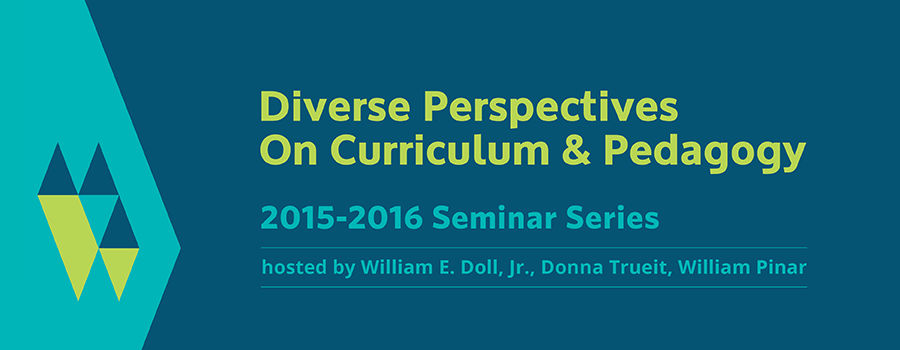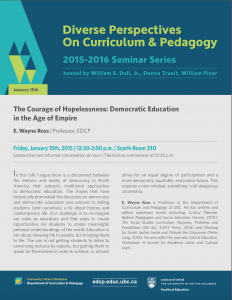Remember Proposals are Due, April 15, for the Rouge Forum Conference
Send Your Articles, Photos, Cartoons, for the Rouge Forum News to Community Coordinator Adam Renner.
On the Little Rouge School Front:
CTA is the Biggest Campaign Spender in California: “ $211,849,298″
“Fire All the Teachers” Demagogue Becomes Good Cop on NCLB: “The new proposals would require states to use annual tests, along with other indicators, to divide the nation’s nearly 100,000 public schools into three groups: some 10,000 to 15,000 high-performing schools that would receive rewards or recognition, some 5,000 chronically failing schools requiring vigorous state intervention, and 80,000 or so schools in the middle that would be encouraged to figure out on their own how to improve.”
AFT Welcomes Common National Standards (ya cannot make this stuff up): “The new standards released on March 10 by the Common Core State Standards Initiative represent the best effort so far to transform today’s patchwork quilt of 50 sets of state standards into one set of strong, consistent expectations for what all students should know and learn, AFT president Randi Weingarten says.”
WashPost: National Regimented Curricula Require Racist Tests: “We will need tests—they will likely evolve into national tests—that are aligned with the new standards. That means changing the annual tests already used in some states, and overcoming the still widespread view that national testing undercuts states rights.”
Emily Alpert on Apartheid U. That is, UCSD: Black students are a rarity at UCSD. Only 1.6 percent of its undergraduate students are black, a stat that has become a rallying cry after an escalating series of racially offensive events around the university…
Paul Moore: “Letter: I teach at the ‘Central Falls High School’ of Miami, Florida, and we won’t let you scapegoat us for your problems.”
Detroit Board Joins George Washington (yes) In Lawsuit Against Bobb: “The Detroit Public School Board unanimously voted Monday night to file a second lawsuit against Emergency Financial Manager Robert Bobb, saying $145,000 in private foundation support he receives under his new contract is unlawful.”
On March 12th the Detroit Federation of Teachers leadership announced on their web site that they would join the lawsuit against Broad’s Bobb while the community began to respond to the Skillman plan to abolish the Detroit School Board. “Union and community activists at a school board meeting Thursday night said they were outraged by the plan to get rid of the board, while many parents were divided, and Mayor Dave Bing said he’d only take on the responsibility if voters agreed.”
Financial Manager Bobb Throws DPS into Deepest Debt Ever: “• Instead of a $17 million surplus Bobb projected for this fiscal year, spending has increased so much Bobb is projecting a $98 million deficit for the budget year that ends June 30…(and proves concessions don’t save jobs)…The financial situation will be managed, Bobb said, if a number of measures take place for the fiscal year that begins this summer. Among them: eliminating 2,100 positions to save $128.8 million; reducing health care costs by $47 million; saving $8 million through outsourcing transportation; and closing an estimated 41 schools.”
Detroit News Editorial: Back the Tyrant; Fire the Teachers and Let the Union Help! “Detroit Federation of Teachers President Keith Johnson says his leadership team will hold a review today to decide whether to eject Conn and other such teachers from the union for their actions. That seems appropriate. It’s not up to individual teachers to decide what policies they’ll abide by. The union has agreed to some of the changes the dissidents are trying to block. Bobb should fire educators who are actively working to undermine district policies during school hours.
Bobb, Skillman, Broad, et al, Plan to Seize Detroit Schools–Close 40: “A coalition of education leaders and foundations will unveil today a sweeping academic reform agenda that targets failing schools, calls for 70 new programs and launches a national effort to recruit principals. The $200 million plan also aims to build community support this year to eliminate the Detroit Board of Education and make the mayor accountable for Detroit Public Schools….Other initiatives include the effort from the Detroit Federation of Teachers, which did not sign off on the plan but was engaged in the talks to develop it, to open its own school,”
Who is Michigan Future Inc?
Could it Be A Pattern? KC to Close Half of its Schools: “The Kansas City Board of Education voted Wednesday night to close almost half of the city’s public schools, accepting a sweeping and contentious plan to shrink the system in the face of dwindling enrollment, budget cuts and a $50 million deficit.In a 5-to-4 vote, the members endorsed the Right-Size plan, proposed by the schools superintendent, John Covington, to close 28 of the city’s 61 schools and cut 700 of 3,000 jobs, including those of 285 teachers.”
Texas Loves Them Textbooks: Tx, Fla, and California set the social studies standards in textbooks because they make huge, state-wide, purchases. ”In economics, the revisions add Milton Friedman and Friedrich von Hayek, two champions of free-market economic theory, among the usual list of economists to be studied, like Adam Smith, Karl Marx and John Maynard Keynes. They also replaced the word “capitalism” throughout their texts with the “free-enterprise system.”
“Let’s face it, capitalism does have a negative connotation,” said one conservative member, Terri Leo. “You know, ‘capitalist pig!’” ”Cynthia Dunbar, a lawyer from Richmond who is a strict constitutionalist and thinks the nation was founded on Christian beliefs, managed to cut Thomas Jefferson from a list of figures whose writings inspired revolutions in the late 18th century and 19th century, replacing him with St. Thomas Aquinas, John Calvin and William Blackstone. (Jefferson is not well liked among the conservatives on the board because he coined the term “separation between church and state.”) “The Enlightenment was not the only philosophy on which these revolutions were based,” Ms. Dunbar said.”
Read the rest of the Rouge Forum Update here.


